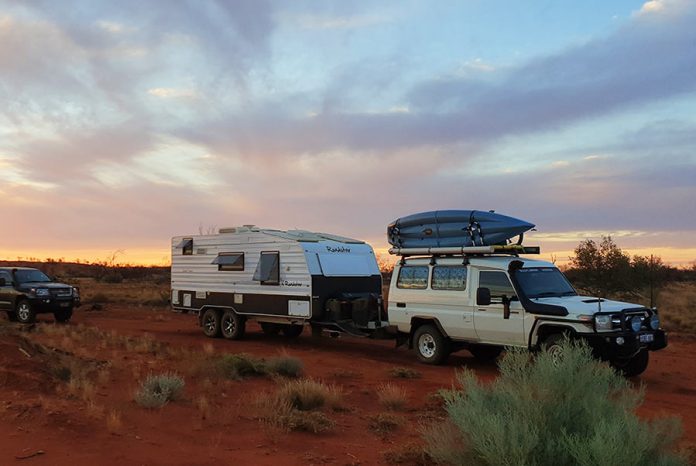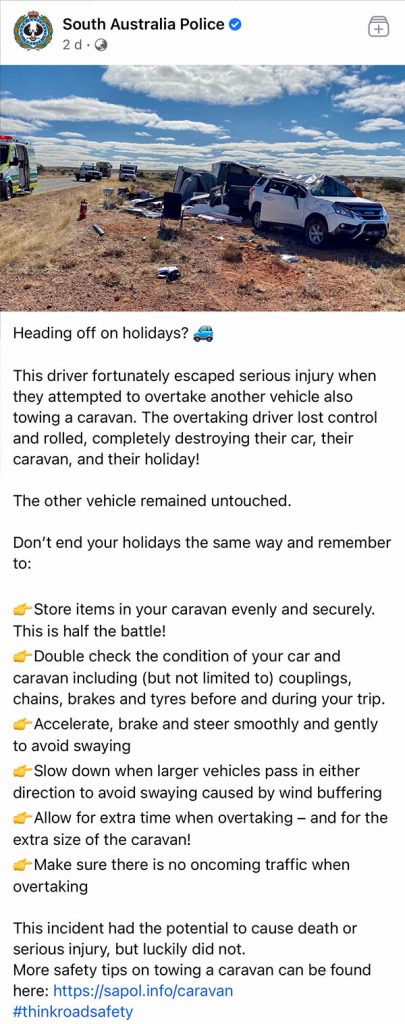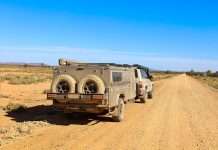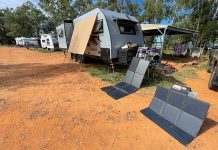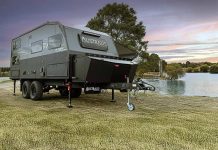When planning a caravan holiday, most people think about what they need to take with them, the tourist attractions they want to visit, how much money they will need to spend, and generally just focus on having a great time. But what about planning for emergencies? What do you need to do to ensure you’re prepared for the worst?
Let me tell you a story. It’s about friends of ours who were travelling down the west coast of Australia last year in their large motorhome. They had just left Carnarvon and were on their way to Geraldton when they stopped to refuel at a servo back out on the coastal highway. When they pulled up at the fuel pump there was a loud bang and the inside of the cabin started to fill with smoke.
They both jumped out of the motorhome, along with their frightened dog, and called the fire brigade. The battery that resided under the passenger seat had exploded for no apparent reason. Thanks to the quick actions of the bystanders and the local fire brigade, the emergency was quickly contained. The fire was confined to the battery itself and the motorhome suffered minimal damage.
Our friends’ story is not all that unusual. Incidents like this happen every day all over Australia. Some happen in populated areas and some in the remote outback, many kilometres away from emergency assistance. The majority of these incidents amount to little more than some inconvenience, but others end in tragic circumstances.
These sorts of emergencies are not what we like to think about when planning a holiday. We would rather think about the more pleasant aspects. But I’m here to tell you that if you do not have a few simple things in place before you head off, you really are leaving yourself exposed to the physical and financial implications of an emergency.
Here are five simple things you can do before you head off that may save you a lot of heartaches if and when you’re faced with an emergency.
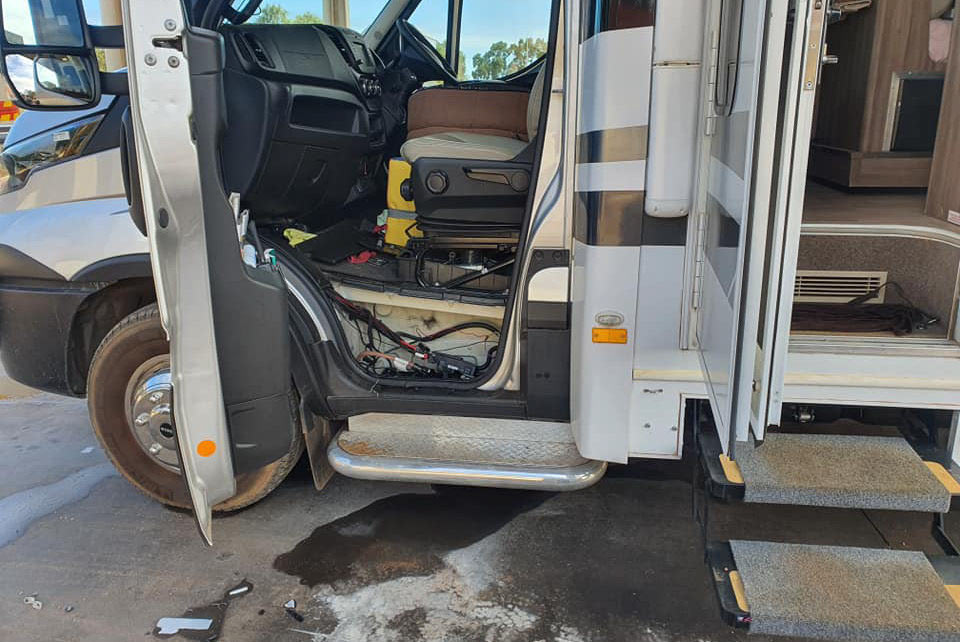
DO A FIRST AID COURSE
We have all seen the memes on social media making a mockery of the many ways this country is trying to kill us. The truth is that many of these memes are not too far removed from reality. Australia has many dangerous animals. The country is rugged and remote.
Outside of the major cities, emergency care can be hours away. If you or a member of your family is hurt, suffers a poisonous sting or bite, or has to go through a medical emergency, being trained in modern first aid gives you the best chance to react to the situation and manage the person involved until specialised medical assistance arrives.
In addition to being trained, carrying a well-stocked first aid kit is essential. We keep one in the car and one in the caravan. And even though I spent 30 years in the emergency services, I still keep a copy of a first aid manual with us and occasionally read it to refresh my knowledge.
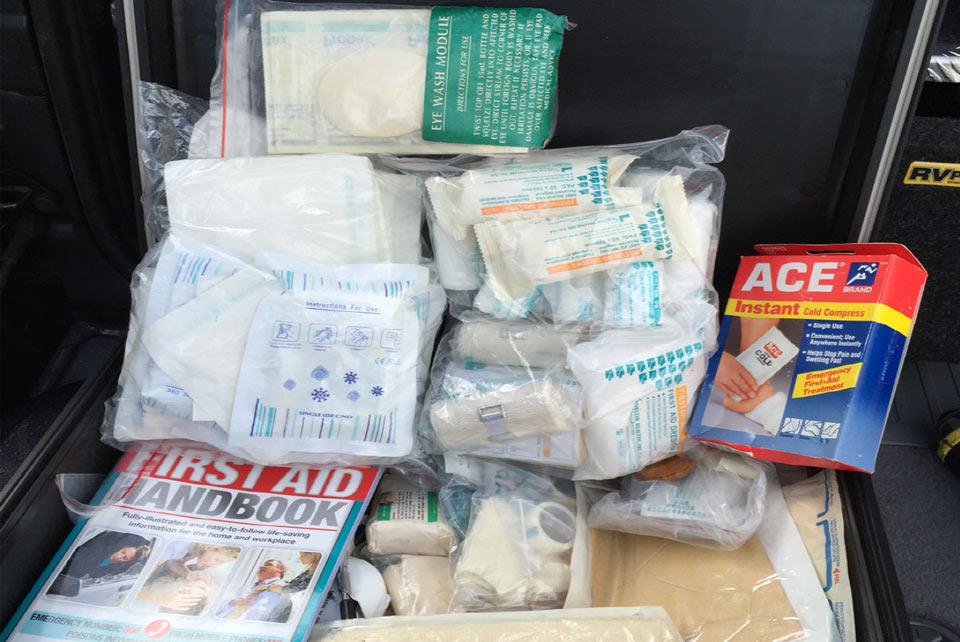
EMERGENCY ROADSIDE ASSISTANCE
Driving a modern motor vehicle around town will not put it under much pressure. But pack it full of the gear for you and your family, attach a huge caravan on the back, drive for several hours a day in 35-degree heat with the airconditioner across our less-thanfantastic outback roads, and you really will be pushing that vehicle to its limits.
Breakdowns are a genuine concern and you need to be prepared to deal with one. Your basic roadside assistance will not cut it in these situations. You will need top-level cover to ensure you get the maximum towing allowance available and that your caravan and tow vehicle will be taken care of.
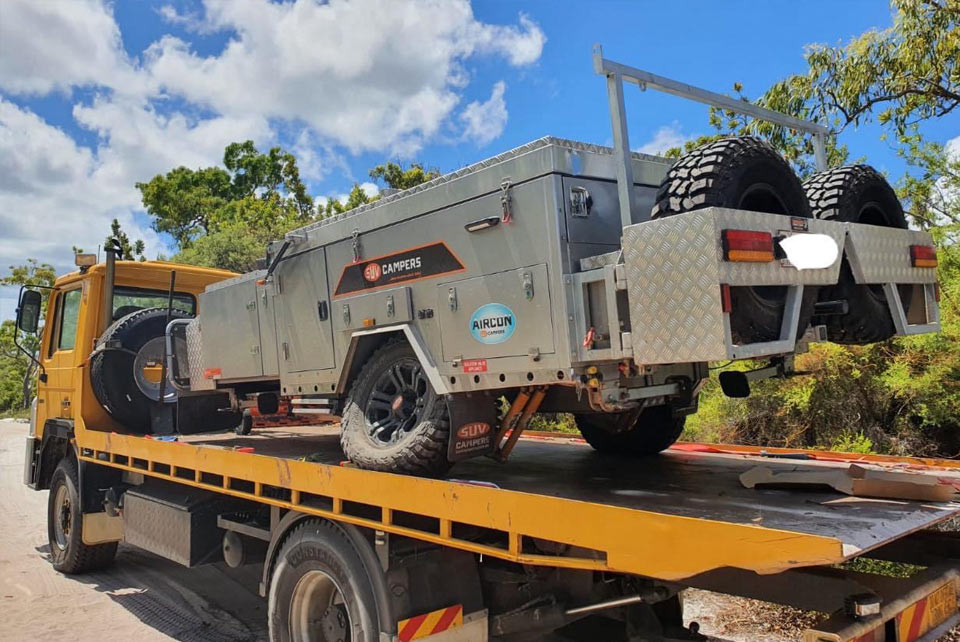
EMERGENCY COMMUNICATIONS
I cannot imagine there would be too many travellers without a mobile phone and, for the most part, these are sufficient for making emergency calls within most cities, towns and major highways across the country.
But before you assume you will have coverage everywhere you go, have a look at the coverage maps for the various mobile telcos in Australia and you’ll soon realise there are great swathes of the country where there is no mobile phone service. If you are travelling in these areas and you have to deal with an emergency, how are you going to call for help?
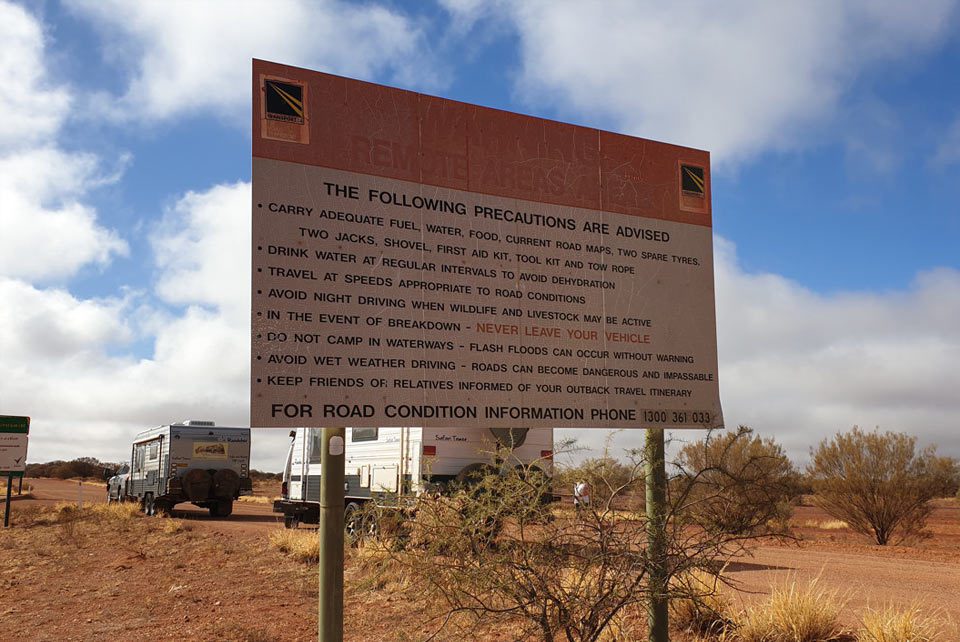
There are many options available, including emergency beacons or EPIRBs, and devices such as the ZOLEO Global Satellite Communicator, which allows you to summon emergency services at the push of a button, anywhere on the planet, and send text messages to friends and family back home.
Using satellite phone networks can cost a lot of money. Fortunately, in Australia, calls to Triple Zero are free and must be able to be made from any mobile phone in range of its network, even if it doesn’t have an active SIM card. This applies to satellite phones as well. So all you need to do is purchase the satphone itself, new or second hand, and as long as it is charged up and in range of its particular satellite network, you can call Triple Zero for free and get emergency assistance.
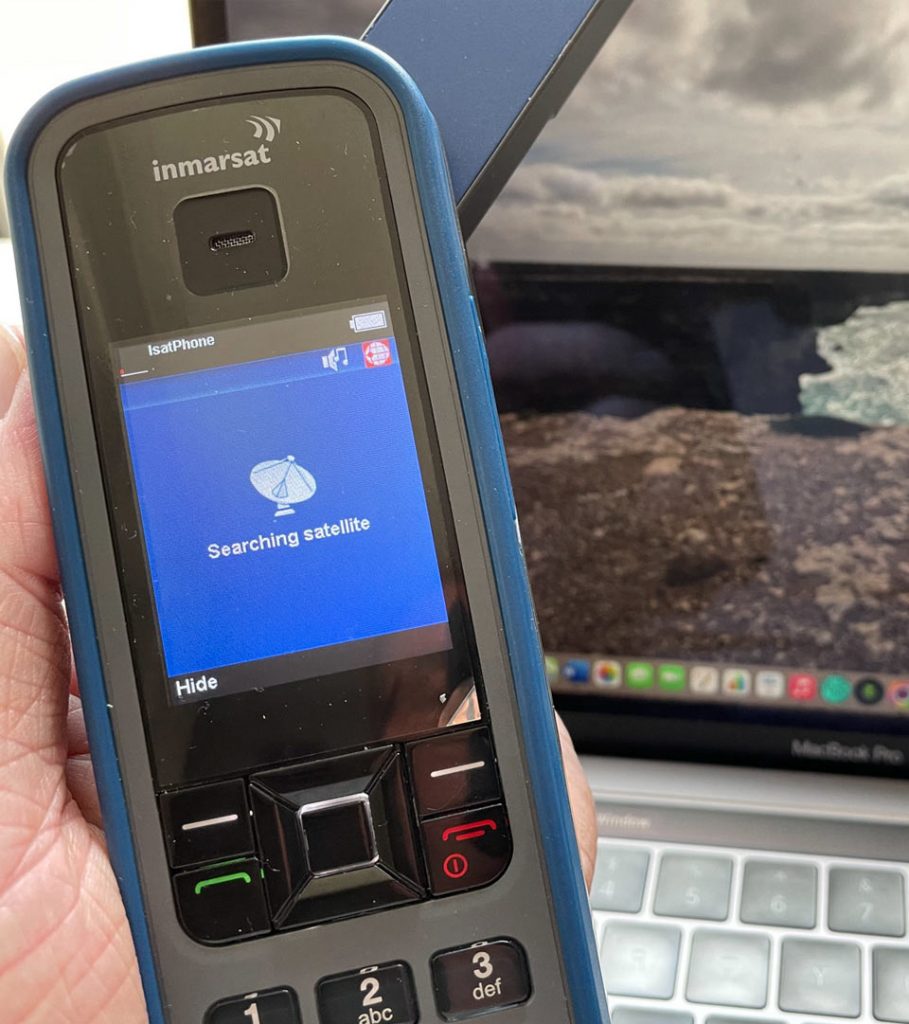
CARRY A FIRE EXTINGUISHER AND BLANKET
Of all the minor situations that can quickly escalate into a catastrophe, fire is probably at the top of the list. Even a small electrical fault in a caravan can result in a fire that can get out of control very quickly.
Fortunately, most caravans will have a small fire extinguisher fitted in a convenient spot. It is important you know where it is, ensure it is charged and that you know how to use it effectively. In addition, having a fire blanket in the kitchen area of your RV or outside near the barbecue means you can deal with grease fires as soon as they happen. Ensuring your RV is fitted with working smoke and carbon monoxide alarms will add another layer of safety.
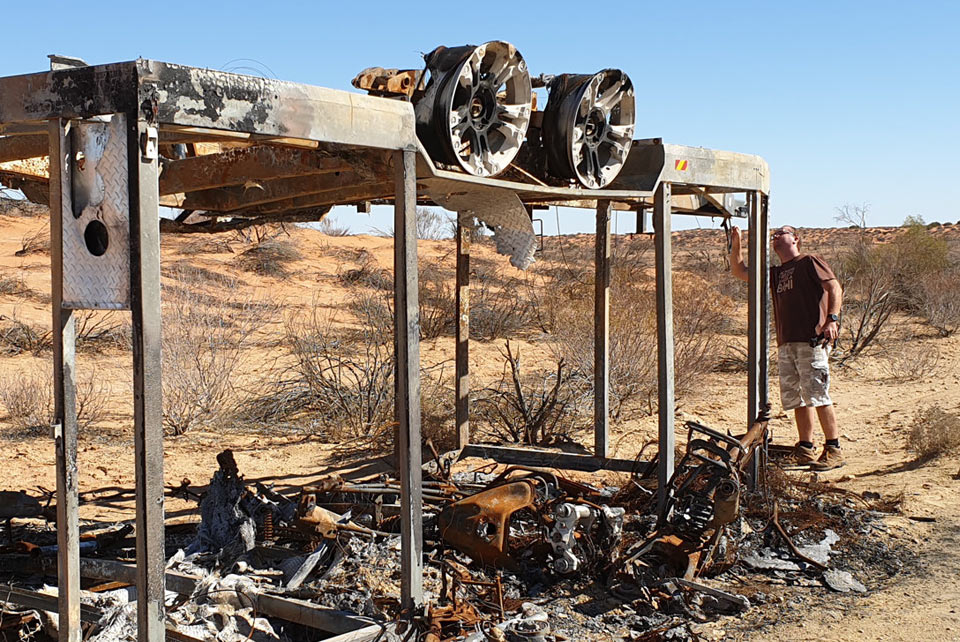
TOWING DISASTER
It should go without saying that avoiding disasters extends to towing. This was posted to Facebook by South Australia Police in early July.
EMERGENCY FUNDS
Imagine you live in Sydney and that you’re on holiday in Broome. Suddenly, there’s a family emergency and you and your family have to get back home urgently. You may have to fly your family back to Sydney and arrange to transport your car and caravan back separately. How much do you think that might cost you?
Or consider how much it might cost you to replace the engine in your expensive tow vehicle after it gets a dose of bad fuel from an outback servo.
These might be worst-case scenarios but if they do occur, you will need to have access to a lot of money very quickly. Having an amount of money put aside to deal with these sorts of emergencies before you leave is good insurance. How much depends on many things but you should start around the $5000 to $10,000 mark for a couple and possibly more if you’re a family.
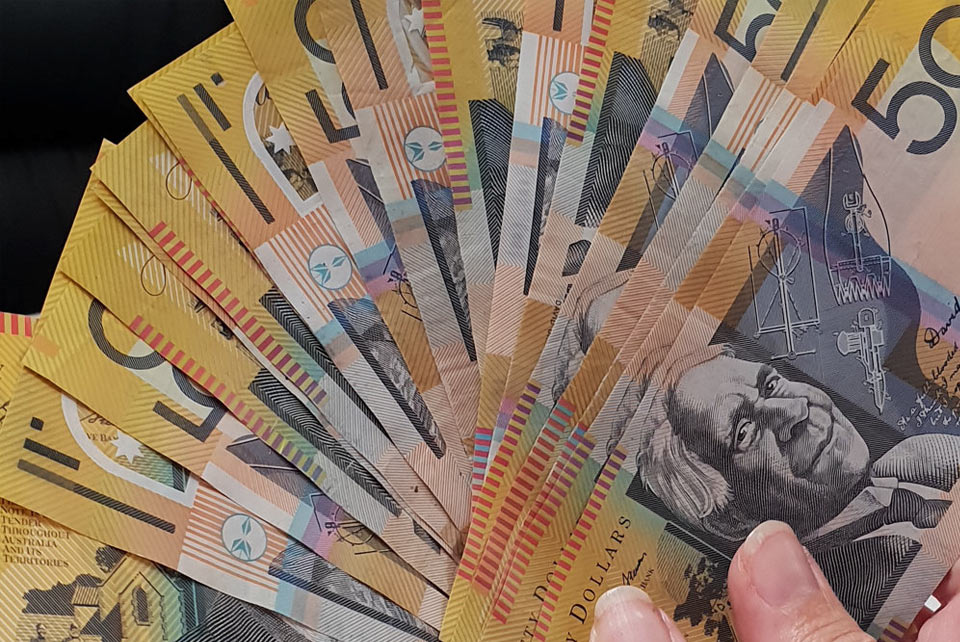
There are many other things you can do to prepare for any emergency, large or small. The more you can prepare yourself and ultimately do for yourself, the better off you will be.
One thing I will recommend is not to be afraid to ask for, or accept, help from your fellow travellers. They say a problem shared is a problem halved. You never know what skills the people in the next caravan park may have that can assist you in a time of need.
Conversely, if you see another traveller in distress or in need of assistance, don’t wait for them to ask. Offer a helping hand if you can. You never know when you might need the favour repaid.
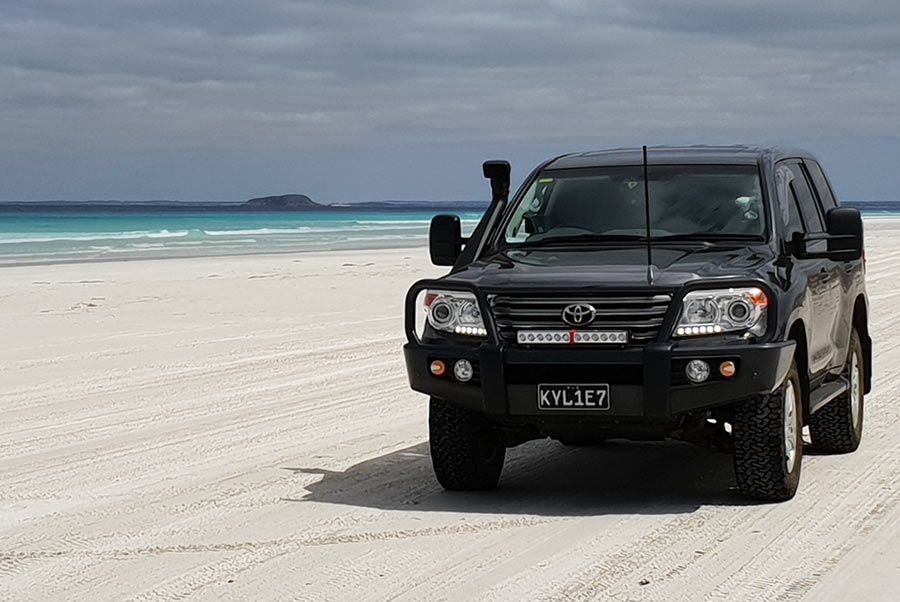
Words and images: Marty Ledwich
www.rveethereyet.com


